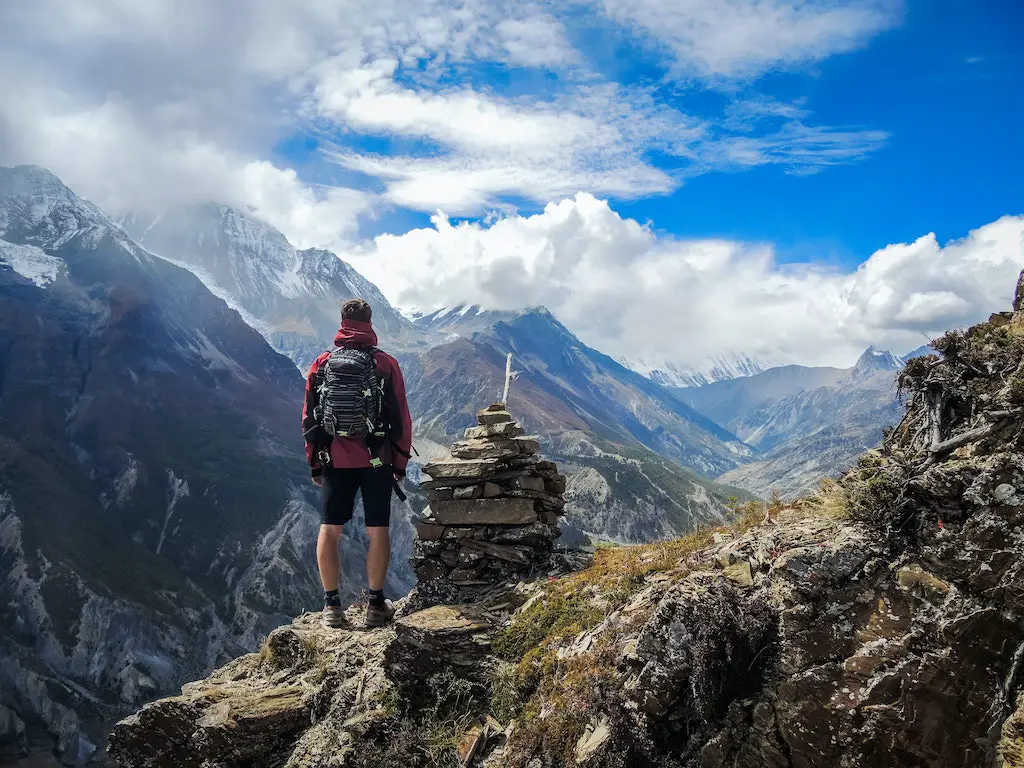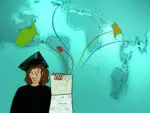The internet is full of solo-travel vlogs and self-help gurus who seem to find joy and fulfillment in traveling through Southeast Asia and telling everyone about it. But, like many of the concepts championed by online lifestyle influencers, solo travel is not for everyone. As the pandemic continues, it may be entertaining to live vicariously through other people’s adventures, but it is also important to keep the realities of solo travel in the back of our minds.
It is not news that the internet is full of stories that range from objectively false, to attempting truth and maybe almost making it. There seems to be a cultural phenomenon that is arising on the internet that promotes solo travel as a means of “finding oneself” or “accepting oneself.” That notion is strengthened by many YouTubers who (through no fault of their own) record the highlights of their travels.
So, like many millions of other people, I found myself living vicariously through vloggers whose lives on the other side of the world seemed infinitely more interesting and beautiful than my own. The record of their solo travel adventures left me hungry to try it myself.
One particular vlogger convinced me that it would be a great idea to solo travel around South Korea. It is a relatively safe country with great public transportation and a host of historical sites, museums, art galleries and cafes all just waiting for exploration. And so, with the nervous energy of unmeasured anticipation, I prepared for what I thought would be a great adventure. I suppose it could be said that the self-revelatory effects of solo travel did take hold on me, but not in the pleasant, peaceful way that I had anticipated. Solo travel can be a great experience for some, but to have this great experience I would advise avoiding the following thought patterns:
1. “My life is going to be so great when I finally get to go to [insert destination here].”
This is a story that is quite common in the human psyche — and certainly relevant outside of the realm of solo travel too. The story that something better can be found elsewhere is one that precedes the advent of the internet, and one that definitely feeds into the ultimately self-destructive notion that there must be something better than the here and now. One such story can be found in the promotion of solo travel as an “Eat, Pray, Love” style cure-all. The fact is that the promise of solo travel in the future is not the remedy for less-than-ideal circumstances in the present.
There are two factors at play here: a non-acceptance of the present moment and a mountain of expectations for the future. It’s forsaking the thing that does exist (the now) for a mind-made future destination, a destination that will never materialize in the way that it is imagined. It is a psychological recipe for intense disappointment. This is not to say that a healthy excitement is not warranted when planning some kind of getaway, but that it should be anchored firmly in a full acceptance of the present moment.
2. “I’ll be fine all on my own.”
This is not necessarily a lie, it just depends on what your definition of “fine” is. The truth is that beautiful scenery is not a sufficient stand-in for human connection. During my first solo venture to Gyeongbokgung, it occurred to me that many of the solo travel YouTubers that I followed probably experienced the same loneliness. The only difference was that they were able to make a little bit of ad revenue off of this less-than-ideal experience.
That, and many of the people who travel alone for extended periods usually stay in hostels or find tour groups for some much-needed human contact. Therefore, what they call “solo traveling” is more of a mix between traveling alone and traveling with strangers who are probably just as hungry for human connection. There is a precarious and highly personal balance to keep here; maintaining sanity often means traveling “solo,” but not primarily traveling alone.
3. “I’m going to go on this trip without a plan and just let the cards fall where they may.”
This approach might work if you’re someone who thrives off of panic and uncertainty or someone who is fluent in the local language and highly familiar with the public transportation system. But if you are not any of these things, I can say from experience that it will not be a pleasant time. Don’t end up like me: stranded on the side of a remote and barren highway near the North and South Korean border. There is a time and a place for planning, and that time and place is well before your solo ventures.
4. “I need to solo travel for some kind of fulfillment and self-development.”
There is no “checklist” for personal growth, and if there were, solo travel might not even make the cut. Maybe the best lesson that can be learned from the coronavirus quarantine is that much of the “self-development” that everyone seems to be seeking can be found in a multitude of ways, even in the mundanity of everyday living, and even in the comfort of your home.
Perhaps the root of the hype around solo traveling is the element of joy and mental clarity that many people experience only when placed in unfamiliar environments. The novelty of their surroundings makes them acutely aware of the here and now, and this presence in the now dims the pain of the past and the fear of the future as the mind’s attention is totally absorbed by the sight of a strange new bird species or a stately mountain range.
Focusing acutely on each moment as it comes becomes natural, and the benefits of quieting the noisy mind follow. But the good news is that peace of mind does not require a $1000 flight across the world. It is found in the now and can also be discovered in the multitude of YouTube videos and books that offer meditation guidance.
All of this is not to say solo travel has no purpose or that what YouTubers promote is far from the truth. It may be a lived truth for them and a hobby they truly enjoy. The main problem here is the extreme romanticism. The idea that only those who have had the opportunity to travel solo can belong to an exclusive club of people who have experienced the true joy of living is false.
The activities that promote the true joy of living differ widely from person to person, and luckily, a 14-hour flight is not a necessary prerequisite for the vast majority of the world’s opportunities for a sense of fulfillment. Fortunately, access to the “joy-of-living club” can often be found outside of YouTube vlogs, while accepting your present circumstances. From the viewpoint of acceptance, there is no need to idealize travels across the world. At a time when travel across the world is highly unadvisable, it may be better to focus attention on the potential for joy in the present moment.

















